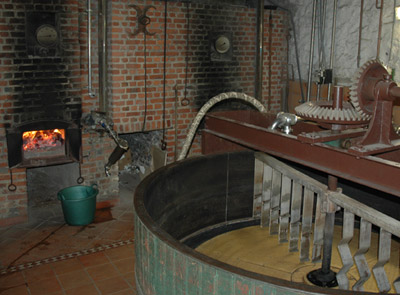My first thought on seeing the headline “Craft Beer Steps Into Wine Country” was that wine country (Northern California) was one of the early beachheads for craft beer.
In fact, the story in Advertising Age (warning, sometimes you can link here and later the story will be listed as paid content) the story notes that small-batch brewers are “increasingly cribbing vintners’ marketing techniques in an effort to keep volume and prices buzzing.”
Methods long synonymous with high-end wine marketing, such as reserve bottlings, vintage dating, future-allocation programs and even vertical tastings (in which drinkers compare multiple vintages of the same beverage) are becoming increasingly commonplace among craft brewers.
The story looks into pricing, reporting how Grand Teton in Wyoming is able to charge twice as much for a single one-liter “reserve” bottle than it does for a regular six-pack Of course there is the success of Stone Brewing’s Vertical Epic Ales.
Stone Brewing CEO Greg Koch says the brewery’s emphasis on vintages has created a demand for older bottles. A 2002 bottle, which cost $4.99 upon release, fetched $400 on eBay last November. Mr. Koch says that degree of consumer enthusiasm has driven production from 300 bottles in 2002, the inaugural bottling, to 7,500 bottles this year, which is on pace to sell out.
“It really is a lot like selling fine wine, very boutique-ish,” Fred Rosen of Sam’s Wine and Spirits in Chicago told the reporter. “The beer and wine sections are looking more alike all the time.”
Wine should be so lucky.
